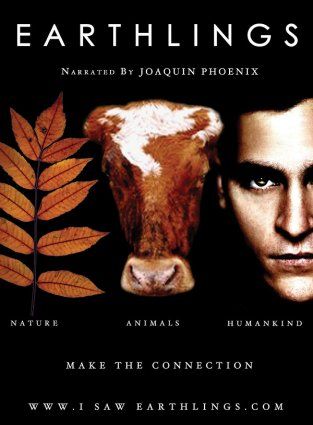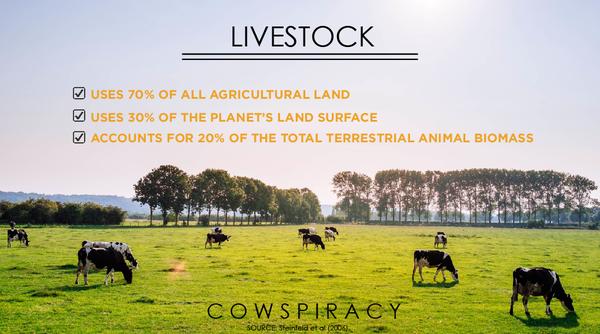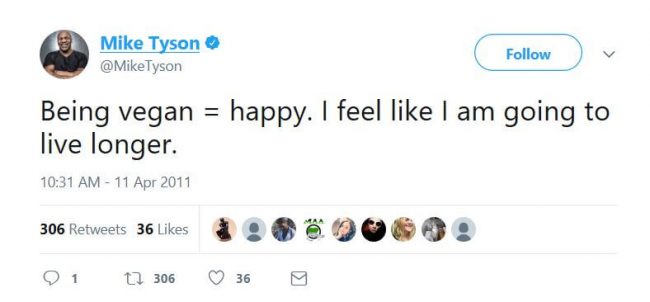by Benedicta Denteh
Veganism. What was once a hippy trend acquired by those who had been thought to be tree huggers and animal rights obsessed activists (and to some extent, still is) has now caught on to pop culture. With more than a 350% rise in the number of Vegans in Britain between 2006 until now, it is impossible to deny that the movement has become a significantly influential diet and fashion/cosmetic change in people’s lives.
High streets shops and restaurants are also quickly learning to accommodate for the growing population of veggie-lovers with the arrival and rising popularity of around 1788 vegan/vegetarian friendly restaurants in England alone and the introduction of plant-based alternatives across all major British supermarkets.
We have also witnessed hundreds of celebrities adjusting to the vegan/vegetarian diet and showing interest in the movement such as; Bill Clinton, Ariana Grande, Angela Davis, Snoop Dogg, Serena Williams and so many, many more.

But why? Why the Rise in Veganism?
A large majority of the vegan population has undoubtedly emerged from the large wealth of footage of abuse and slaughter in farm factories. Animal lovers from across the country are often brought to tears after watching videos of dairy cows yearning for their stolen children be returned to them, baby chicks being thrown into obliterators and pigs chocking to death in gas cages.
However, it is safe to say that not all of us are largely affected by witnessing animal distress, and that makes sense. To some length some of us are desensitised and others of us see the many benefits to maintaining a standard British diet such as convenience, tradition and taste.
Nevertheless, there are many other reasons why people are changing or slightly modifying their diets which pass animal rights, the environment or health, and that is human rights. This is not to say that every single human rights issue is intrinsically linked to veganism but that it is important to consider some of the ways it could be.

Mental Health in Slaughter Houses
Many factory farm employees are subject to suffering from the psychological repercussions of their jobs. It is as simple as this, they spend hours and hours killing animals, and this often leads to what is called PITS (Perpetration-Induced Traumatic Stress). This is similar to PTSD, the big difference being that the person affected is often the one creating the traumatic situation i.e. killing animals all day. This of course can consequently lead to violent dreams playing back at work.
On the flip side the same type of exposure to violence everyday on the job can lead to a desensitisation (to do with remorse and killing). Across many streams of footage from sources such as “Earthlings” directed by Shaun Monson and Land of Hope and Glory by Ed Winters, in slaughter houses we witness the ways in which animals are disposed of with no remorse and even sometimes beaten.

This level of cruelty can become abnormal not only affecting animals but also affecting the general public as studies show that slaughterhouse work has been linked to incidents of domestic abuse and drug/alcohol abuse. However, this is not to say that all workers are affected in the same way. There are many accounts of farmers who consider it as a job and leave it all behind at the factory, being about to develop normally and happily in the outside world. Be that as it may, the psychological toll this kind of work could have is often ignored.
Human Rights Watch also reports that many factory farms “exploit the perceived vulnerability of a predominantly immigrant labour force in many of their work sites ”who are “unaware of their workplace rights” making it directly a human rights issue when considering workers’ rights and violation.
Again, this is not to say that every single person who works in factory farms is severally affected by their work however it’s important to, to an extent, understand the psychological implications this kind of work can have.
Waste of Vital Resources
We are no strangers to the idea that we as a world are running out of land and food for the ever rising population of humans. But what if this simply wasn’t the case.
In many developing countries, livestock serves as a multifunctional asset to many businesses, providing both food and money to its workers as well as stored wealth in the animals at times of crisis. On the other hand, livestock is also the world’s LARGEST user of land resources “the production of feed (for the animals) representing almost 80 % of all agricultural land” reports the Food and Agriculture Organization of the United Nations.

The fact of the matter is that as populations grow the demand for food grows accordingly however we will not have enough land to support the world on standard US or UK diets as the number of inhabitants increases.
In addition to this, a lot of resources that we feed to these domestic animals mean that there is less food for people. Around one THIRD of the world’s water consumption is used to produce animal products, it takes around 2,000 gallons of water to produce around one pound of meat. This is shocking considering that around two billion humans in the world do not have access to safe drinking water.
In addition to this, a lot of plant based foods such as soy, grain and corn are fed to livestock animals. It is estimated that 47% of soy and 60% of corn grown is actually given to farm animals in the US and 85% of the land used to produce food in the UK is used for animal products. If we were to decrease the middleman, we would be able to feed more people than the world currently has on more than sufficient diets. However, this is suggesting that we would have to means to distribute food to regions where malnutrition and famine is high.

There is more to veganism than the campaigns let on
It is an undeniable fact that there is more to veganism than animal cruelty and rights. There are also health and environmental reasons, and with the shocking changes to the climate, like snow in Hawaii, ice caps melting and a ten-year countdown to global catastrophe we need to start acting quickly and more thoughtfully about our purchases. I’m not insisting that everyone must completely change their diets overnight, that works for hardly for anyone, but a slow introduction to vegan and veggie alternatives could aid to some human rights issues.
It is of course not the only way to solve the issues we have. A lot of environmental change and such is linked to the staggering rise in population, the air and water pollution by big industries, the wastage of clothes and food on a daily basis, the excessive use of plastic, the list goes on. There are also other jobs that could be considered which could be detrimental and cause psychological harm.
Veganism for all we know could be a trend which could end soon. There is also an argument of whether veganism is truly one of the healthiest, environmentally-friendly diets, but many studies suggest that for now the number of vegans will continue to rise.
But the big question I leave you with is, Do YOU know the stories behind your food?
Benedicta is currently studying Arabic and French at the University of Manchester and hopes to become a linguist and broadcast journalist in the future. In her free time, she enjoys learning about African development and issues to do with race, society and culture. Benedicta also takes pleasure in pole fitness, travelling and promoting plant-based eating.


